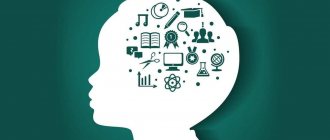- April 28, 2020
- Medicine
- Anastasia Kazyulina
The famous psychologist Alexey Nikolaevich Leontiev brought a lot of new things to the study of the human psyche; this figure was also involved in philosophy and pedagogy. His main activity was the study of general issues of science, such as the evolution of the human psyche, the phenomena of memory and the structure of attention, personality problems and many others. Leontiev also developed a methodological basis for psychological research. Each of you has probably heard at least the name of the scientist, but how much do you know about him? Biography of A.N. Leontyev, you can find out his contribution to scientific activity if you read this article. But first things first.
Education
Although the biography of A.N. Leontiev has already been studied by many researchers; little is still known about Alexei Nikolaevich’s school years. The future psychologist graduated from the 1st Moscow Real School, which was renamed into the Unified Labor School during the years of Alexei Nikolaevich Leontyev’s training.
After graduating from labor school (and he graduated early), Alexey Leontyev, already interested in psychology, entered Moscow State University, the Faculty of Social Sciences. The future psychologist's teachers were such great scientists as Georgy Ivanovich Chelpanov and Gustav Gustavovich Shpet. During the years when Alexey Nikolaevich Leontyev was a student, there was a turbulent situation at the university - the struggle for the creation of materialist psychology was heating up, the consequence of which was a kind of anti-Chelpanov putsch. Thanks to the new director, such people as Alexander Romanovich Luria and Lev Semenovich Vygotsky appeared in Leontyev’s life. Together with them, Leontyev would later write his landmark works.
Alexey Nikolaevich graduated from the university in 1923. However, after graduation, he remained at the Psychological Institute in order to prepare to become a professor of psychological sciences.
Personal life
The academician had an only son, Alexey, who also followed in his footsteps. In the future, he will become a linguist, psychologist, and also a doctor of philological and psychological sciences. It is noteworthy that the grandson of the creator of the activity theory, Dmitry Leontiev, will also continue the dynasty of close relatives.
Dmitry will become a specialist in the fields of personality psychology, motivation and meaning, theory and history of psychology, psychodiagnostics, psychology of art and advertising, psychological and comprehensive humanitarian examination, and will also be awarded the title of Doctor of Psychological Sciences.
Scientist's career. Start
Biography of A.N. Leontyev's career developed further in line with scientific activity. In 1925, Alexey Nikolaevich began work on a cultural-historical theory; to be more precise, a psychologist studied the development of memory within culture. An entire book, published in 1931, is devoted to this research.
In the same year, Alexey Nikolaevich Leontyev moved from Moscow to Kharkov. Already at the end of 1931, the scientist became the head of the psychology department at the Ukrainian Psychoneurological Academy.
Later, from 1933 to 1938, Leontyev served as head of the psychology department at the Kharkov Pedagogical Institute.
With the beginning of the Great Patriotic War, in 1941, in the biography of A.N. Leontyev, in short, there was a turnaround. He was evacuated to Ashgabat. However, two years later he moved to the Sverdlovsk region. Here he supervised research staff in a rehabilitation hospital; at the end of 1943, psychologist Alexei Nikolaevich Leontyev returned to his native Moscow and worked here until the end of the war in the hospital.
Institute years
According to Alexey Alekseevich himself, back in 1953, when he graduated from school, it was absolutely clear that doing science was his true calling. Among various options for admission, he considered various humanities and even organic chemistry.
As A. A. Leontiev recalls, psychology was undoubtedly among the sciences that attracted him. But he did not enter this faculty. Of course, one of the main reasons was that his father headed the department of psychology at Moscow State University. Lomonosov. Psychology was either absent as a specialty in other educational institutions or was just beginning to appear. Therefore, A. A. Leontyev chose the Faculty of Philology.
Career takeoff
In 1947 A.N. Leontyev applied to join the party. Without membership in the All-Union Communist Party (Bolsheviks) it was impossible in those days to build a career and engage in scientific activity. In 1948, the scientist’s application was approved and he was accepted into the party. From that moment on, the career of a psychologist took off.
In 1950, Alexey Nikolaevich became a full member of the Academy of Pedagogical Sciences. Here he first held the position of academician-secretary of the psychology department, and later, in 1959, Alexey Nikolaevich Leontyev became vice-president of the academy.
In parallel with his scientific activities, Alexey Nikolaevich was also engaged in pedagogy. In 1951, he again came to Moscow State University, now to the position of head of the department of psychology at the Faculty of Philosophy.
In 1966, Leontiev founded a new department at Moscow State University - the Faculty of Psychology. It still exists today. Ten years later, Alexey Nikolaevich Leontyev makes a new discovery. This time the opening of a psychological laboratory in which perception was studied. This laboratory is also in operation today.
A.N. died Leontiev in 1979, January 21. Until his death, the scientist was engaged in research. He left behind many works, which to this day have not lost their relevance and are used by students as textbooks. The contribution to psychology of Alexei Nikolaevich Leontyev is invaluable. In addition, the work of Alexey Nikolaevich is continued by his son Alexey Alekseevich and grandson Dmitry Alekseevich. Both of them followed in their father's footsteps and began to study psychology.
This concludes the short biography of Alexei Nikolaevich Leontyev. Let's move on to his main works.
Leontyev Alexey Nikolaevich
Alexey Nikolaevich Leontiev (1903–1979)
, one of the founders and leader of Russian psychological science in the most difficult times for science, is by no means one of the “forgotten” authors: despite the ambiguous attitude towards his theoretical heritage, which is largely due to his acceptance Marxism as the methodological basis of psychological science, his name and ideas live and actively work not only in the works of his direct students and the students of his students, but throughout the entire scientific community. Moreover, he is one of the few founders of scientific schools whose students did not limit themselves to repeating and concretizing the teacher’s ideas, but in many respects moved far forward to new theoretical frontiers. A. N. Leontyev is an outstanding Russian psychologist of the modern era, who at one time worked at Saburova’s dacha, a former Saburyan who at one time created the famous Kharkov group of psychologists and is the author of the general psychological theory of activity. Alexey Nikolaevich is widely known as the recognized leader of Soviet psychology of the 40–70s of the XX century. He was the initiator of the creation of the Society of Psychologists of the USSR. His services to Russian science are great and varied. A. N. Leontiev developed a cultural-historical theory in the 20s of the last century, together with L. S. Vygotsky and A. R. Luria, conducted a series of experimental studies revealing the mechanism of formation of higher mental functions (voluntary attention, memory) as a process “rotation”, internalization of external forms of tool-mediated actions into internal mental processes. Experimental and theoretical works are devoted to problems of mental development (its genesis, biological evolution and socio-historical development, development of the child’s psyche), problems of engineering psychology, as well as the psychology of perception, thinking and other issues. Based on the ideas of cultural-historical theory, A. N. Leontyev put forward and developed in detail the general psychological theory of objective activity, which is one of the influential and new theoretical directions in domestic and world psychology. The content of this concept is closely related to Alexey Nikolaevich’s analysis of the emergence and development of the psyche in phylogenesis, the emergence of consciousness in anthropogenesis, mental development in ontogenesis, the structure of activity and consciousness, the motivational and semantic sphere of personality, methodology and history of psychology, revealing the mechanisms of the origin of consciousness and its role in the regulation of human activity. Based on the scheme of activity structure proposed by A. N. Leontiev (activity - action - operation - psychophysiological functions), correlated with the structure of the motivational sphere (motive - goal - condition), a wide range of mental phenomena (perception, thinking, memory, attention and others) was studied ), among which special attention was paid to the analysis of consciousness (singling out meaning, sense and “sensual tissue” as its main components) and personality (interpretation of its basic structure as a hierarchy of motivational and semantic formations). The concept of Alexey Nikolaevich’s activity was developed in various branches of psychology (general, children’s, pedagogical, medical and social), which in turn enriched it with new data. The position formulated by A. N. Leontyev on leading activity and its determining influence on the development of the child’s psyche served as the basis for the concept of periodization of children’s mental development put forward by D. B. Elkonin. Psychology was considered by A. N. Leontyev as the science of “the generation, functioning and structure of the mental reflection of reality in the processes of activity.” Alexey Nikolaevich Leontyev graduated from the Faculty of Social Sciences of Moscow University (1924), Doctor of Psychology (1941), Academician of the Academy of Pedagogical Sciences of the USSR (1950), laureate of the Lenin Prize (1963). After graduating from the university, he worked at the Institute of Psychology (1924–1927), the Academy of Communist Education named after. N.K. Krupskaya (1927–1931), All-Ukrainian Psychoneurological Academy and Kharkov Pedagogical Institute (1931–1935), All-Union Institute of Experimental Medicine, Higher Communist Institute of Education (1935–1936), Institute of Psychology (1936–1963). In 1942–1945 he headed the scientific work of the Experimental Rehabilitation Hospital near Sverdlovsk. Since 1941 - professor at Moscow State University (MSU), since 1950 - head of the department of psychology, since 1963 - head of the psychology department of the Faculty of Philosophy, and since 1966 - dean of the Faculty of Psychology at Moscow State University. Academician-secretary of the psychology department (1950–1957) and vice-president (1959–1961) of the Academy of Pedagogical Sciences of the RSFSR. A. N. Leontiev was born in Moscow on February 5, 1903, his parents were ordinary employees. His father, Nikolai Vladimirovich, was by birth a tradesman of the Pankratyevskaya Sloboda in Moscow, and by profession a financial worker specializing in film distribution. His mother, Alexandra Alekseevna, came from the family of a Volga steamship operator, that is, a merchant family. Naturally, they wanted to give Alexey a good education. Therefore, it is not surprising that Alexei Leontiev’s scientific activity dates back to his student years. In 1924, he graduated from the Faculty of Social Sciences of Moscow University, where G. I. Chelpanov taught a general course in psychology. G.I. Chelpanov headed the Institute of Psychology at Moscow State University in those years, leading a group of students for research work. It was within the walls of this university that Alexei Nikolaevich wrote his first scientific works - the abstract “James' Doctrine of Ideomotor Acts” and a work on G. Spencer. After graduating from the university, Alexey Nikolaevich became a graduate student at the Institute of Psychology. It was here in 1924 that A. N. Leontiev met with L. S. Vygotsky and A. R. Luria, after which their joint work soon began, since these three people with outstanding abilities quickly found a common language, and their the union foreshadowed many useful things. But, unfortunately, this activity was interrupted after the death of L. S. Vygotsky. In such a short period of joint work, the results of their activities were still impressive. The article “The Nature of Human Conflict” published by A. N. Leontiev and A. R. Luria was a stunning success, because it was in it that the technique of “conjugate motor reactions” was presented and the idea of mastering affect through speech output was born. Next, Alexey Nikolaevich personally developed the idea and embodied it in an article entitled “Experience in the structural analysis of chain associative series.” This article, published in the Russian-German Medical Journal, is based on the fact that associative reactions are determined by the semantic integrity that lies “behind” the associative series. But this particular development did not receive worthy recognition. He met his wife in 1929, when he was 26 years old. After dating for a short time, they got married. His wife never interfered with his scientific activities; on the contrary, she helped and supported him in the most difficult moments. A. N. Leontiev’s interests lay in a variety of areas of psychology: from the psychology of creative activity to experimental human perception of objectivity. And Alexey Nikolaevich addressed the need to find a completely new approach to the subject and content of psychophysiological research, which is now developing from the general system of psychological knowledge. At the end of 1925, his famous “cultural-historical concept” was born, which was based on the famous formula of L. S. Vygotsky S–X–R, where S is a stimulus, a motive; X - means; R is the result of the activity. A. N. Leontyev began to develop the ideas of this work, but at the Institute of Psychology, which at that time was busy with completely different issues, it was not possible to implement this undertaking. It was for this reason that A. N. Leontyev and A. R. Luria moved to the Academy of Communist Education, also working simultaneously at VGIK, GITIS, at the G. I. Rossolimo clinic and at the Institute of Defectology. And one more thing that influenced the future fate of A. N. Leontyev: in the late 20s - early 30s, scientific and pedagogical institutions where he collaborated began to close one after another, sometimes with a political scandal. For example, a “basement” about VGIK appeared in two central newspapers at once under the threatening title “Nest of Idealists and Trotskyists.” One of the consequences of this article was the forced departure of Alexei Nikolaevich from VGIK in 1930. The stronghold of L. S. Vygotsky’s group, the Academy of Communist Education, also fell out of favor in 1930, its faculty of social sciences was declared “Trotskyist,” and in 1931 it was “exiled” to Leningrad and renamed an institute. In any case, A. N. Leontyev was dismissed from it on September 1, 1931. There was nothing to think about working at the Institute of Psychology, although after the departure of K. N. Kornilov, the ideas of L. S. Vygotsky and his school were used in the new scientific program of the institute. However, according to documents, in December 1932, Alexey Nikolaevich was still listed there as a “1st category research assistant.” Since 1931, psychology has not been taught at all at Moscow State University. So A. N. Leontyev had nowhere to work - at one time he even served in the Supreme Council of the National Economy of the USSR as a “techprop consultant” (technical propaganda). And all three - L. S. Vygotsky, A. R. Luria and A. N. Leontiev - began to look for a place of work where they could continue the begun cycle of research. They were lucky: all three (as well as L.I. Bozhovich, A.V. Zaporozhets and M.S. Lebedinsky) - at the end of 1930, an invitation came from Kharkov, which was then the capital of the Ukrainian SSR, from the Ukrainian People's Commissar of Health S.I. Kantorovich. The People's Commissariat of Health of the Ukrainian SSR decided to create a psychology sector at the Ukrainian Psychoneurological Institute (later, in 1932, it was transformed into the All-Ukrainian Psychoneurological Academy, which was located, as you know, at Saburova Dacha) (“psychoneurological sector”). L. S. Vygotsky, recalled Alexey Nikolaevich, participated in the negotiations. The post of head of the sector was offered to A.R. Luria, the post of head of the department of experimental psychology (later called the department of general and genetic psychology) was offered to A.N. Leontiev. Officially, Alexey Nikolaevich was hired on October 15, 1931. In November 1931, L. S. Vygotsky was appointed head of the department of genetic psychology at the State Institute of Personnel Training of the People's Commissariat of Health of the Ukrainian SSR. However, unlike A.R. Luria and A.N. Leontyev, he did not move to Kharkov, although he was constantly there - he gave reports, gave lectures, took exams as a part-time student at the medical institute (where he entered the same 1931). However, in his family, moving to Kharkov was discussed more than once and there was even a question of exchanging a Moscow apartment for an apartment in Kharkov. Why the move did not take place is unknown. According to E. A. Luria (in her memoirs about her father), the fact was that L. S. Vygotsky and A. R. Luria did not have a good relationship with the leadership of the All-Ukrainian Psychoneurological Academy. But Alexey Nikolaevich said that L. S. Vygotsky was offered excellent conditions for moving, and the reasons for L. S. Vygotsky’s refusal of the invitation remained incomprehensible to him [1, 3, 4, 8]. At the end of 1931, A. R. Luria, A. N. Leontyev, L. I. Bozhovich and A. V. Zaporozhets moved to Kharkov and settled in a large apartment, which Professor L. L. Rokhlin rented for the Moscow commune, where some for a time they really all lived in it together. For three years, until 1934, A. R. Luria visited Kharkov on visits - according to his own recollections, he “cruised” between Kharkov and Moscow (and L. S. Vygotsky - between Kharkov, Leningrad and Moscow). L.I. Bozhovich also did not stay long in Kharkov, who soon moved to neighboring Poltava, to the Pedagogical Institute, although she continued to constantly collaborate with the “Kharkovites”. From time to time, L. S. Vygotsky also visited her in Poltava. A. N. Leontyev remained in Kharkov for almost 5 years. He not only headed the department and was a full member of the All-Ukrainian Psychoneurological Academy, but - after the final departure of A. R. Luria - took over from him the leadership of the entire sector of psychology (even earlier, in 1932, he was the deputy head of the sector). Consequently, taking all the work upon himself, Alexey Nikolaevich later became the leader of the famous Kharkov group of psychologists. In addition, he was the head of the department of psychology at the Medical-Pedagogical Institute of the People's Commissariat of Health of Ukraine, and later the head of the department of psychology at the Kharkov Pedagogical Institute and the Research Institute of Pedagogy (even later - the All-Ukrainian Institute of Scientific Pedagogy). Among the places of work of Alexey Nikolaevich in Kharkov was the rather exotic position of professor at the Kharkov Palace of Pioneers and Octobrists named after. P. P. Postysheva. “In the same year, I was approved by the Central Qualification Commission of the NKZ of the Ukrainian SSR with the rank of professor, and with the introduction of the law on degrees and titles, I was granted the rank of full member of the Institute by the Central Qualification Commission of the NKZ of the Ukrainian SSR and with the rank of professor by the Central Qualification Commission of the NKP of the Ukrainian SSR,” - reports A. N. Leontiev in his published autobiography. In addition to A.V. Zaporozhets and T.O. Ginevskaya, Kharkov psychologists began to group around Alexei Nikolaevich. These were P. Ya. Galperin, a group of graduate students from the Pedagogical Institute and the Research Institute of Pedagogy - P. I. Zinchenko, V. I. Asnin, G. D. Lukov, then K. E. Khomenko, V. V. Mistyuk, L. I. Kotlyarova, D. M. Dubovis-Aranovskaya, E. V. Gordon, G. V. Mazurenko, O. M. Kontsevaya, A. N. Rosenblum, who died early, T. I. Titarenko, I. G. Dimanshtein, F. V. Bassin and others. Thus was born the Kharkov group of psychologists, which worthily entered the history of Soviet and world psychology. “The years of my work in Ukraine,” writes A. N. Leontyev in his autobiography, “... amounted to... a period of revision of previous positions and independent work on general psychological problems, which continued to follow the line of predominantly experimental research. This was facilitated by the special conditions and tasks that confronted me at that time: it was necessary to organize a new team of very young employees and qualify them in the process of developing work. This is how the Kharkov group of psychologists was created... During this period, I and under my leadership carried out a number of experimental studies, starting from new theoretical positions in connection with the problem of the psychology of activity” [1, 3, 4, 15]. And it is absolutely no coincidence that the program of specific experimental research of the Kharkov group of psychologists has all its roots in philosophical and methodological issues. Let us present here very briefly the characteristics given by A. N. Leontiev himself of the main stages of research by the Kharkov group of psychologists. The first cycle of research (1932–1933) dealt with the “image-process” problem. Here the following were studied: the relationship between speech and practical intelligence (L. I. Bozhovich), the discursive thinking of a preschooler and the development of meanings (A. V. Zaporozhets, L. I. Bozhovich) and mastery of a concept in the learning process (A. N. Leontyev). The beginning of P. I. Zinchenko’s experiments on forgetting and the development of the problem of “perception as action” by A. V. Zaporozhets date back to this time. The result of this cycle was, firstly, the position that in transference meaning and generalization are not only revealed, but also formed, and that transfer is not only an adequate method for studying generalization (L. S. Vygotsky), but also the process of generalization itself . Communication is a particular condition of transfer. Secondly, the provision about two different types of transfer (the application of practical action in a situation and a discursive process) and, accordingly, different levels of generalization. The image “lags behind” the process (experiments with the separation of meaning and operation). The second cycle of research (1934–1935) pursued the following goal: to bring the processes under study “outside” and trace them in external activities. Here, first of all, the problem of a tool arises as an object in which a socially developed technique is fixed. It differs from the means (subordinate to “natural psychology”). This includes the famous experiments of P. Ya. Galperin, described in his dissertation in 1935, the works of P. I. Zinchenko and V. I. Asnin, A. V. Zaporozhets and L. I. Bozhovich. The general result of this cycle of research was the conclusion: “to master a tool, as well as a meaning, means to master a process, an operation. Whether this happens in communication or in “invention” is indifferent” (A. N. Leontyev). What determines the operation itself? Firstly, the objective properties of the object. But, secondly, how an object appears depends on the person’s attitude, on the process as a whole. “And this process is life.” The main idea of the third cycle of research (1935–1936) was as follows: “The key to the morphology of consciousness lies in the morphology of activity.” This includes the works of V. I. Asin, T. O. Ginevskaya, V.V. Mistyuk, K. E. Khomenko and others, but primarily G. D. Lukov, who showed the relationship between theoretical and practical activity in the experiment on the material of awareness During the game. In the study of V. I. Asin, the idea of the structure of activity as a whole arises (the dependence of the effectiveness of solving the problem on the goal, motivation, the nature of all activities). The fourth cycle of research (1936–1940) proceeded from the premise: "All internal processes are built on the model of external activity and have the same structure." Here there were many studies, first of all, P. I. Zinchenko about involuntary memorization (memory as action), A. V. Zaporozhets about perception as action, G. D. Lukov about the game (experimental “breeding” of meaning and meaning) and a number others; It is interesting that at this time the perception of art was largely the object of study of the Kharkovites [1]. What was the personal role of A. N. Leontyev in the works of the Kharkov group as a whole? It should be started with the fact that he was constantly in Kharkov only until the end of 1934 - early 1935, after which he returned to Moscow and visited Kharkov only from time to time (for example, the letter of D. B. Elkonin of June 26, 1936 was written from Kharkov from Kharkov ). But even after that, he remained, as they say in social psychology, and the “instrumental”, and the “expressive” leader of the group. It is he who belongs to the merit of the methodological and general theoretical substantiation of the entire experimental activity of the Kharkiv residents. This in no way belittles the role of other members of the group, for example, A. V. Zaporozhyts or P.I. Zinchenko; “Kharkov” psychology was created by collective efforts, but A. N. Leontyev was always at the center of the Kharkovites. All of them recognized this and indicated in their (unfortunately, very few) publications. In the Kharkov period, in 1933–1936, Alexei Nikolaevich developed (theoretically and experimentally) primarily a hypothesis about the fundamental genesis of sensitivity as the ability of an elementary sensation. It was not then published and only stated orally - in the reports made in Kharkov and Moscow. The first publication on this subject appeared only in 1944 (A. N. Leontyev, 1944). In parallel, he dealt with the problem of periodizing the phylogenetic development of the psyche in the animal world, the problem of the relationship of congenital and acquired experience. And in 1936, in parallel in Kharkov (together with V. I. Asnin) and in Moscow (together with N. B. Poznanskaya), a systematic experimental study of the formation of sensitivity to an inadequate stimulus was conducted - in other words, “visions of the skin” ... But all this was all this One and possibly not the most important part of the giant project undertaken by A. N. Leontyev in the second half of the 30s. Developing more and more projects, Alexei Nikolaevich published the book “Activities. Consciousness. Personality ”, where he defends his point of view that a person not only adjusts his activities under the external conditions of society, and these same conditions of society carry the motives and goals of his activity. In parallel, A. N. Leontyev begins work on the problem of the development of the psyche, namely, the study of extrapolate reflexes in animals. In 1936, Alexei Nikolaevich returned to the Institute of Psychology, where he worked before leaving for the psychology department of Moscow State University. At the institute, he is dealing with the issue of photosensitivity of the skin. At the same time, A. N. Leontyev teaches at VGIK and GITIS. He collaborates with S. M. Eisenstein and conducts an experimental study of the perception of films. In the prewar years, he becomes the head of the Department of Psychology at the Leningrad State Pedagogical Institute. N.K. Krupskaya. In the second half of the 1930s, Alexei Nikolaevich developed the following problems: a) the phylogenetic development of the psyche, and in particular the genesis of sensitivity; b) the “functional development” of the psyche, that is, the problem of the formation and functioning of the activity; c) the problem of consciousness. These problems were well illuminated in the doctoral dissertation of A. N. Leontyev “Development of the psyche”, protected in the LGPI named after A. I. Herzen in 1940. The dissertation included only part of the results of his research, but, unfortunately, this work of A. N. Leontyev was not completely preserved. The dissertation contained articles on, in particular, memory, perception, emotions, will and arbitrariness. There is also a chapter called “Activities - Action - Operation”, which gives the main conceptual system of activity psychological theory. According to Alexei Nikolayevich, the activity is inseparable from the subject of its need, and to master this subject, it is necessary to focus on its properties that are vitually indifferent in itself, but are closely related to other vital properties of objects, i.e., “signal” about the presence or the absence of the latter. Thus, due to the fact that the activity of the animal acquires an objective nature, in its infancy, a form of reflection specific to the psyche arises - a reflection of an object with properties, vital, and properties that signal them. The sensitivity of A. N. Leontyev defines, respectively, as an irritability in relation to such influences that correlate by the body with other influences, that is, which orient the living being in the subject content of its activity, performing a signal function. Alexey Nikolaevich is involved in the purpose of checking the hypothesis put forward by him. First, in Kharkov, and then in Moscow, with the help of the experimental methodology developed by him, he reproduces in artificially created conditions the process of turning imperisable stimuli into felt (the process of a person’s sensation of color with a skin of a hand). Thus, A. N. Leontyev for the first time in the history of world psychology made an attempt to determine the objective criterion of the elementary psyche, taking into account the sources of its origin in the process of interaction of a living being with the environment. Summing up the results of the data accumulated in the field of zoopsychology, and based on his own achievements, Alexei Nikolaevich developed a new concept of the mental development of animals as a development of the mental reflection of reality due to changes in the conditions of existence and nature of the process of animal activities at different stages of phylogenesis: the stages of sensory, perceptual and intellectual psyche. This area of work of A. N. Leontyev was directly related to the development of the issue of activity and the problem of consciousness. Developing the problem of the individual, Alexei Nikolaevich adhered to two areas of his activity. He worked on the problems of the psychology of art. In his opinion, there is nothing where a person could realize himself as integral and comprehensively as in art. Unfortunately, today it is almost impossible to meet his work on the psychology of art, although during his lifetime Alexei Nikolaevich has worked a lot on this topic. In 1966, A. N. Leontyev finally switched to the faculty of psychology of Moscow State University, from that time until the last day of his life, Alexei Nikolaevich was a permanent dean and head of the Department of General Psychology of this University. A. N. Leontyev left our world on January 21, 1979; It is impossible to overestimate his scientific contribution, because it was he who managed to force many to reconsider his views and, on the other hand, approach the subject and content of psychophysiological studies. The most important works of A. N. Leontyev are: “Development of memory” (1931); “Restoration of movement” (in co -author, 1945); “Essay on the development of the psyche” (1947); “Psychological development of the child at preschool age” (1948); “Sensation, perception and attention of children of primary school age” (1950); “Mental development of the child” (1950); “Human psychology and technological progress” (in co -author, 1962); “Needs, motives and emotions” (1973); "Activity. Consciousness. Personality "(1977); “Problems of the development of the psyche” (1981); “Category of activity in modern psychology” (1979); “Selected psychological works. - in 2 volumes ”(1983); “Discussion about the problems of activity” (in co -author, 1990) and others. At the same time, the publication and analysis of his scientific heritage are far from completion. The huge archive of A. N. Leontyev, stored in his family, is still disassembled only partially. After the death of Alexei Nikolaevich, many of his unpublished manuscripts and transcripts were published and continued to publish; Only the books that are completely or partially based on archival materials are already four, which is comparable to the number of its (different) lifetime books! Work with other biographical sources, shed light on the ups and downs of his life path, takes even more time and much more painstaking than work with manuscripts. Moreover, the Internet provides optimal opportunities for working with materials from scientific archives, allowing you to make archival materials available at minimal expenses, interesting usually a limited circle of readers [6]. A. N. Leontyev was the laureate of the Lenin Prize (1963) for the book “Problems of the development of the psyche” (1959; 3rd edition, 1972), Honorary Doctor of Paris University (1968); Honorary member of the Hungarian Academy of Sciences (1973). He was awarded the Order of Lenin, 2 other orders, as well as medals. Academician A. N. Leontyev did a lot for the development of domestic psychology, for the approval of a worthy place of Soviet psychology in the global psychological community. This is the merit of Alexei Nikolaevich that in large universities of our country the department of psychology at philosophical faculties were transformed into independent psychological faculties; that the Higher Attestation Commission identified psychological sciences (consisting of 12 disciplines) into an independent group from the total composition of pedagogical sciences; that psychology was introduced into the nomenclature of the Academy of Sciences of the USSR and the Department of Philosophy and the Law of this Academy was renamed the Department of Philosophy, Psychology and Law; that the sector of the psychology of the Institute of Philosophy of the USSR Academy of Sciences was transformed into an independent Institute of Psychology; that at the Faculty of Psychology of Moscow State University, a new magazine "Bulletin of Psychology" was created. Thanks to his efforts and under his chairmanship in 1966, the XVIII International Congress of Scientific Psychology was held in Moscow, which, according to foreign psychologists, was one of the best organized congresses of the International Association. It should be noted that from the very day of the death of A. N. Leontyev and until the people were and are located, as if setting themselves as a vital goal to discredit the personality and activity of Alexei Nikolayevich, diligently creating a certain halo around him. For this inconspicuous goal, some separate facts of his biography are artificially selected and tendentially interpreted. And such facts as the selfless struggle of A. N. Leontyev for the fate of his direct and even indirect students or his demonstrative refusal to dismiss M.K. Mamardashvili from the faculty; Like a “cover”, which Alexei Nikolaevich created with his considerable weight for the calm work of the faculty, - we will recut to the memories of S. G. Jacobson, which says: “With the advent of the department of psychology, I came from this unpleasant Soviet reality, with its denunciations, personal matters and other fussing into a completely different world - the world of eternal values, the desire for truth, in the world of completely different people ”; As an act almost incredible in Soviet times, when, on the initiative of A. N. Leontyev, a doctoral dissertation of the secretary of the faculty party bureau was failed - all these and many other facts drawing the genuine image of Alexei Nikolaevich as a crystal honest, deeply decent and rarely fundamental person and leader, Simply ignored. Pupils and associates of A. N. Leontyev, who knew him well, confirm that this difficult person who knew how to be intolerant, tough and irreconcilable, but when it was necessary for business, flexible, tolerant and compromise, was just like about him They say - honest, bold, decent and fundamental - and so he remained in our common memory of him. His former student Fedor Efimovich Vasilyuk speaks in his published memoirs about A. N. Leontyev: “... we intuitively felt his unusual scale both professional and human ... He was a man from some other world, the world of great people ...” [19, 20]. P. Ya. Halperin rightly emphasizes that in the history of psychology his name will be in the front row of its outstanding builders [18]. Thus, academician Alexei Nikolaevich Leontyev made a significant scientific contribution to the development of domestic psychology, enriching it with the largest achievements. Its high fundamentalness as a citizen and scientist, the breadth of scientific interests and the originality of thinking, conscientiousness and perseverance in work are the best example for young people who decided to devote itself to science. There is no doubt that the creative biography and scientific achievements of Alexei Nikolaevich are of great interest to domestic psychological and psychiatric science and need a further thorough study, especially with regard to the work of the Kharkov group of psychologists.
Works: Selected psychological works, vol. 1-2.- M., 1983; Development of memory., M., 1931; Restoring movement. -M., 1945 (co-author); Essay on the development of the psyche. - M., 1947; Psychological development of a child in preschool age // Questions of psychology of a preschool child. - M.-L., 1948; Sensation, perception and attention of children of primary school age // Essays on the psychology of children (junior school age). - M., 1950; Child's mental development. - M., 1950; Human psychology and technological progress. - M., 1962 (co-author); Needs, motives and emotions. - M., 1973; Activity. Consciousness. Personality. - M., 1977; Problems of mental development. - M., 1981; Category of activity in modern psychology // Issue. Psychology, 1979, No. 3; Discussion about the problems of activity // Activity approach in psychology: problems and prospects. Ed. V.V. Davydova and others - M., 1990 (co-author). Lit.: A.N. Leontiev and modern psychology. - M., 1983; To the 90th anniversary of the birth of A.N. Leontiev // Vestn. Moscow un.-ta. Ser.14. Psychology, 1993, No. 2.
Scientific activity. Contributions to psychology
Alexey Nikolaevich Leontiev paid most of his attention to the activities and consciousness of the individual. It was these problems that his research was largely devoted to.
Alexey Nikolaevich Leontiev created the basis of cultural-historical Russian psychology. This theme subsequently touched all of his works.
Initially, at the dawn of his scientific activity, Alexey Nikolaevich Leontiev studied the criteria and principles of the cultural-historical approach to psychology. The material for this was research on human memory and will, regulation.
Expanding the issue
Subsequently, Alexey Nikolaevich expanded the scope of his work. He not only theoretically substantiated many positions in psychology, but also experimentally confirmed them. The scientist was interested in issues not only of general psychology, but also pedagogical problems associated with it. The famous researcher also considered the philosophical aspect of science worthy of study. In addition, A.N. Leontyev studied not only human psychology, but also zoopsychology - a science that studies the psyche of animals.
In 1940, Alexander Nikolaevich defended his doctoral dissertation entitled “Problems of psychic development.” Its main theme was the development of the human psyche in its individual development, or in phylogenesis, in scientific terms. Alexander Nikolaevich not only examined the existing problems, but also proposed his own classification of the stages of mental development. This classification is still used by modern psychologists. A.N. Leontiev identified several phases, stages of development through which the psyche of every healthy person passes.
Initially, a person has an elementary sensory psyche, then it becomes more complex and becomes perceptive, the last - the highest stage of psyche development - is intellect.
The students and followers of Alexei Nikolaevich developed this teaching. Thanks to the foundation laid by Leontyev, many Russian-language works appeared on the development of the child and the role of play in it. This problem was mainly dealt with by the Kharkov Psychological Institute, where Leontiev once worked.
Definition
One of them belongs to Charles Osgood.
It is formulated as follows: psycholinguistics, in a broad sense, is concerned with comparing the structure of messages with the characteristics of the individuals who receive and produce them. D. Slobin and S. Erwin-Tripp gave a brief definition of the discipline. They characterize it as the science of acquiring and applying the structure of language. In 1968, A. Leontiev simultaneously gave 2 different definitions of psycholinguistics. The first summarized other scientists' understanding of the discipline. In accordance with it, psycholinguistics is a science in which the subject is the relationship between the language system and ability. The second definition was formulated “for the future.” In accordance with it, the subject of psycholinguistics is speech activity in general and the patterns of its modeling.
Awards and achievements
Like any famous scientist, Leontyev had many titles and awards. So, in 1940, he defended his doctoral work and became a Doctor of Pedagogical Sciences; as we have already said, in 1950 Leontyev entered the Academy of Pedagogical Sciences and became its full member. In addition, for his contribution to science, Alexey Nikolaevich was given the title of honorary doctor of the Universities of Paris and Budapest.
In 1953, the psychologist was awarded the Konstantin Dmitrievich Ushinsky medal, and ten years later, in 1963, Leontiev was awarded the Lenin Prize, and in 1976 the scientist was also awarded the Lomonosov Prize of the 1st degree.
The transition from linguistics to pedagogy
Over time, linguistics began to fade into the background for Alexey Alekseevich, and he turned his attention to education. Confirmation was a doctorate in the psychology of speech communication (1975). After that, he went to work at the then created Russian Language Institute. A. S. Pushkin, and in 1976 he became a professor.
Also, at certain periods of his life, he worked at the Methodological Center of the Russian Language of Moscow State University and headed various councils. In 1986 he became a professor at Moscow State Pedagogical Institute. In 1988-1991 - Head of the Laboratory of Language Education, in 1990 - Secretary General of the International Association for the Collective Promotion of Language Learning. In 1992, Leontyev was elected a full member of RAO.
In 1994, he headed the Institute of Languages and Cultures. L.N. Tolstoy, who himself created it. Since 1995, he became a member of the Russian Language Council. Since 1997 he has directed School 2000. In parallel with other work, in 1998 he became a professor at Moscow State University. In 2000, he began cooperation with the Center at RAO.









